Alternatives to
Psychiatric Drugs
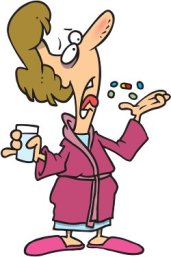 Psychiatric drugs,
also called psychotropic
or psychotherapeutic
drugs,
are drugs that affect how the mind works.
Psychiatric drugs,
also called psychotropic
or psychotherapeutic
drugs,
are drugs that affect how the mind works. Click Here for Step-by-Step Rules, Stories and Exercises to Practice All English Tenses
Many doctors and psychiatrists prescribe psychiatric drugs to try and hide the symptoms of different problems.
These drugs do not cure and have many dangerous side effects.
In addition, once a person quits taking the drugs, the original causes of the mental disturbance still remain.
Psychiatric drugs are used to treat the symptoms of mental problems, but not the problem itself.
They mask (hide) the symptoms. They do not correct or cure any physical problem that may cause the mental problem. With symptoms masked, underlying causes continue, and sometimes become even worse.
Thankfully, mental problems CAN be resolved by finding and fixing the actual causes.
What
are some safe alternatives for mental healing?
Find
and Fix the Cause
Instead of masking (hiding) symptoms with drugs, it makes sense to locate and correct the actual cause or causes of the mental disturbance.
Some alternatives to psychiatric drugs can include:
- treatment
of physical health problems
- educational
solutions
- change in diet
- regular exercise
- healthy,
safe environment
- activities
that promote confidence
A) Find and treat physical health problems
Sometimes, changes in a
person's mental state are the result of an undiagnosed physical health
problem.
Physical pain and suffering can affect your mental outlook on life.
Common physical health problems that may affect a person's mental state include:
Physical pain and suffering can affect your mental outlook on life.
Common physical health problems that may affect a person's mental state include:
- headaches
- backaches
- broken bones
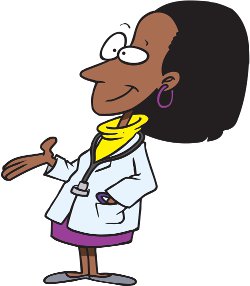
- allergies
- pinched nerves
- vitamin deficiencies
- Alzheimer's Disease
- diabetes
- sexually transmitted diseases
- nicotine or alcohol withdrawal
- menopause
- cancer
- vision problems
A person may not even realize they are in physical pain. Or they may feel their pain is normal and nothing can be done to fix it.
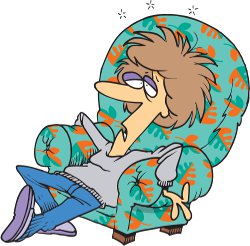 Any
physical health problem can affect your ability to eat, sleep, and
exercise
properly.
Any
physical health problem can affect your ability to eat, sleep, and
exercise
properly.Poor eating and lack of sleep can cause the body to become exhausted, which can also affect a person's mental outlook.
Physical exhaustion may cause a person to feel moody, angry, or depressed. It can also affect the ability to think and concentrate.
If you believe a physical
health problem
is affecting your mental health, consider scheduling a full physical
exam with your doctor and an eye exam with your optometrist.
You can also check out alternative treatments for these problems, including:
You can also check out alternative treatments for these problems, including:
- change in diet
- vitamins and other supplements
- chiropractic
medicine
- massage
therapy
- physical
therapy
- acupuncture
treatments
B) Educational solutions
Many children diagnosed with ADHD
are either struggling academically or are bored in school.
Children who struggle academically may misbehave as a result. These children can be mislabeled as suffering from ADHD.
Many of these children benefit from one-on-one educational tutoring. As they begin to experience success, behavior problems will usually decline.
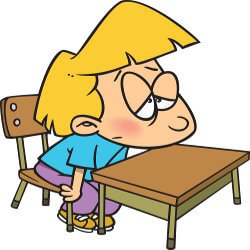
On the other hand, some children are simply bored in the classroom.
For example, students who are not being challenged academically may finish assignments faster than their peers and then become bored waiting for the rest to catch up.
These children need to continue to be challenged in school.
Some of the most talented, creative and successful people in this world could have been mislabeled as ADHD. Take a look at Einstein, for example.
Just because school activities don't meet a student's creativity or high energy levels, it doesn't mean he or she are mentally ill and has to be put on medications.
Children who struggle academically may misbehave as a result. These children can be mislabeled as suffering from ADHD.
Many of these children benefit from one-on-one educational tutoring. As they begin to experience success, behavior problems will usually decline.

On the other hand, some children are simply bored in the classroom.
For example, students who are not being challenged academically may finish assignments faster than their peers and then become bored waiting for the rest to catch up.
These children need to continue to be challenged in school.
Some of the most talented, creative and successful people in this world could have been mislabeled as ADHD. Take a look at Einstein, for example.
Just because school activities don't meet a student's creativity or high energy levels, it doesn't mean he or she are mentally ill and has to be put on medications.
C) Change
in diet
Evaluate your
eating habits.
Keep a record of snacks and meals for a few weeks. Use a healthy eating pyramid as a reference for building a balanced diet.

Children labeled as ADHD are usually overly hyperactive in school.
Sometimes a change in diet is the solution. According to studies, a high protein, low carbohydrate, and sugar free diet can help to reduce anxiety and excitability in children.
A change in diet can also help treat physical health problems such as diabetes, allergies, sleeplessness, headaches, and more.
Talk to your doctor or an expert about a balanced diet, including vitamins and other food supplements for you and your children.
Keep a record of snacks and meals for a few weeks. Use a healthy eating pyramid as a reference for building a balanced diet.

Children labeled as ADHD are usually overly hyperactive in school.
Sometimes a change in diet is the solution. According to studies, a high protein, low carbohydrate, and sugar free diet can help to reduce anxiety and excitability in children.
A change in diet can also help treat physical health problems such as diabetes, allergies, sleeplessness, headaches, and more.
Talk to your doctor or an expert about a balanced diet, including vitamins and other food supplements for you and your children.
D) Regular exercise
Stay active
A healthy diet includes regular physical activity.
Exercise has been shown to prevent depression and help people relax.
Even a short walk can help you to clear your mind and feel more relaxed.
You don't have to become a professional athlete to stay in shape.
There are many easy ways to add physical activity into your day. Pick something you enjoy. Start slow and gradually increase your amount of activity.
Check with your school, local gym, or YMCA about exercise classes and sports teams.
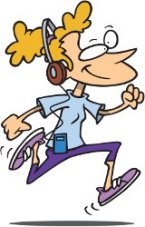
Consider these activities:
A healthy diet includes regular physical activity.
Exercise has been shown to prevent depression and help people relax.
Even a short walk can help you to clear your mind and feel more relaxed.
You don't have to become a professional athlete to stay in shape.
There are many easy ways to add physical activity into your day. Pick something you enjoy. Start slow and gradually increase your amount of activity.
Check with your school, local gym, or YMCA about exercise classes and sports teams.

Consider these activities:
- walking the dog
- jogging
- riding a bike
- playing baseball
- gardening
- swimming
- aerobics
- dancing
- gymnastics
E)
Healthy and safe environment
Everyone deserves to live
in a healthy and safe environment.
When dealing with mental disorders, we must remember to "Do no harm!"
"Do no harm" is a guiding principal for doctors and psychiatrists to ensure that the patient's overall well-being is the first concern.
Patients should not be subjected to any treatments that use force or harm to control unwanted behaviors.
Do no harm!
When dealing with mental disorders, we must remember to "Do no harm!"
"Do no harm" is a guiding principal for doctors and psychiatrists to ensure that the patient's overall well-being is the first concern.
Patients should not be subjected to any treatments that use force or harm to control unwanted behaviors.
F) Activities that promote confidence
Another solution for treatment of mental problems is to
participate in activities that promote confidence. This is especially
important for children and teens.
There are many activities that promote confidence and boost self-esteem.
Here are only a few examples:
There are many activities that promote confidence and boost self-esteem.
Here are only a few examples:
- join
a club or sports team
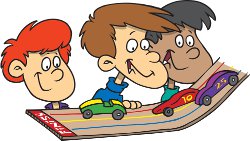
- learn
something new - take pottery classes, learn to paint, or
learn karate
- participate
in charity work - build confidence while helping others
- participate
in a mentor program - children can benefit from positive
adult influence
- train
a dog - not only can you experience success and build
confidence, but you will also gain a life-long friend
Click here to learn
more:
Alternatives to Psychiatric Drugs, Causes of Mental SymptomsMental Health Care: What is the Alternative to Psychotropic Drugs?
Was your child labeled with a mental disorder?
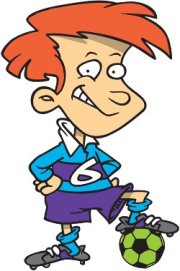 Over
20 million children worldwide have been labeled with some kind of
mental disorder.
Over
20 million children worldwide have been labeled with some kind of
mental disorder. According to the Citizens Commission on Human Rights, "labeling a child 'mentally ill' without any medical evidence to substantiate it is child abuse."
In addition, many believe that prescribing psychiatric drugs to these children is even worse.
Knowing the risks and side effects of psychiatric drugs, we owe it to our children to find a solution using safer alternatives, such as those described above.
You can read more advice
for parents here:
Get Updates, Special Offers, and English Resources
Download your FREE GIFT (the first two chapters of
English Short Stories Book and Workbook)
as soon as you join!

By submitting your email, you consent to receiving updates and newsletters from us and to the sharing of your personal data with third parties for the purposes of sending you communications. We will not spam you. You can unsubscribe at any time. For more information, please see our privacy policy.
Return from Alternatives to Psychiatric Drugs to How to Teach English





